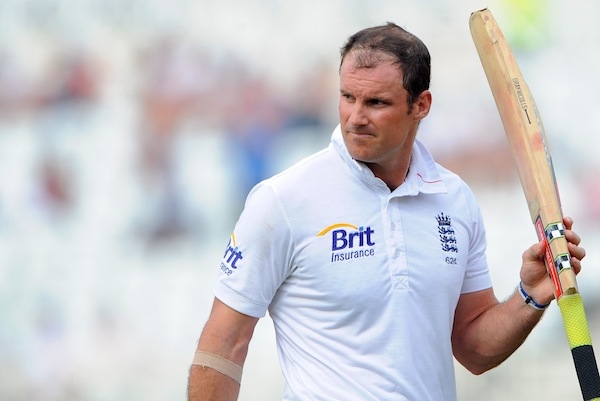‘I’m fascinated by politics. But I’m not that enthralled by any of the parties.’ Those are the words of Andrew Strauss, who resigned the England cricket captaincy earlier today, in an interview with the Spectator last year. The interview was conducted by the former England cricketer Ed Smith, who remarked that ‘Strauss is not talked about with hushed awe’. Where the great Mike Brearley has entered mythology, Smith noted, Strauss has been merely marked ‘effective’.
Now we must talk of Strauss the cricketer in the past tense; and Smith’s judgment merits revisiting. True, Strauss did not inspire awe. He was not a tactician, either in the modern or traditional mould. He was not a macho aggressor, on or off the field. He was content to play it safe before the cameras, answering questions honestly on the occasions when his team underperformed; and he relied on his bowlers to contain the opposition in order to keep those defeats to a minimum.
But that should not diminish or disguise his qualities. Egos demand respect; Strauss commanded it. And he continues to do so. England players have reacted to his retirement by describing him as ‘a great team man’, a ‘pleasure to play with’ and a ‘dependable’ presence. Those are words that one might associate with a Bill Slim type rather than a Bernard Montgomery, but they are synonymous with leadership nonetheless. You don’t need to mimic Henry V before Agincourt to exude charisma and attract loyalty.
There is, to my mind, something of a quiet cult around Strauss, and has been for some time. The newspaper interviews on subjects other than Kevin Pietersen’s genius, the television appearances at Wimbledon and the like, his talks to City firms, the febrile rumours that he may enter the Commons someday, all of these seem to point to some wider public fascination. The recent success of his team (beating Australia home and away, thrashing India to rise to the top of international cricket) is obviously a factor, especially at a time when, frankly, sullen Britain fears its irrevocable decline.
But Strauss’s method and example were important, too. His team assumed elements of his personality. This was evident in the manner in which it generally conducted itself — competitive and dignified, in sharp relief to the lurid fashions of many other English sports teams. This was perhaps the area where Strauss’s leadership was at its most conspicuous. When England played India at Lord’s last year, Matt Prior, the English wicket-keeper batsman, was run out in farcical circumstances. Prior chuntered his way back to the pavilion. There was then heard a bang and the crash of a breaking window. Prior appeared to have thrown a tantrum in the dressing room and debris from the floor had smashed a pane, which sent shards of glass onto the punters below. Strauss, who was sitting on the dressing room balcony, was told of what had happened. He shook his head, looked with palpable irritation into the cavernous dressing room and then went, with Prior, downstairs to apologise in person.
There was something paternal about the scene and it hinted at some of Strauss’s other traits: discipline, responsibility and selflessness. These were most obvious to the outsider when his career was faltering, the year before he was appointed captain. In early 2008 he made a career-saving 177 at Napier in New Zealand, in a game that England had to win. Like all such innings, he was battling the elements third, the opposition second and his own mind first. He played without adventure. The drive and the hook, dashing strokes that Strauss could execute with style, were resisted in favour of an elemental array of prods, dabs and clips. It was a cussed, bloody-minded slog to survive so that the team might prosper; and it was quite brilliant in its way.
Strauss’s secret was, and presumably remains, building a shared sense of purpose. He told Ed Smith last year:
‘The clearer and more stable the leadership, the more players have a common goal, and the more likely they are to play for the team rather than themselves…If you want people to put the team first, you’ve got to give them a say in it, you can’t just stand there and bark orders.’
There are lessons there for all, not just those who fancy themselves born to lead.






Comments